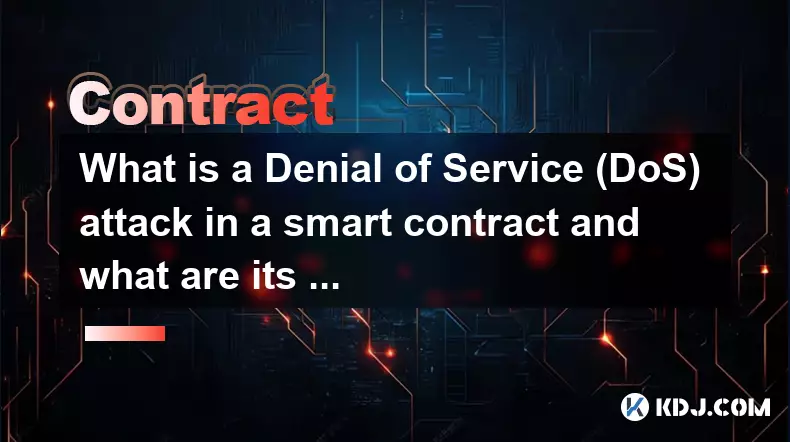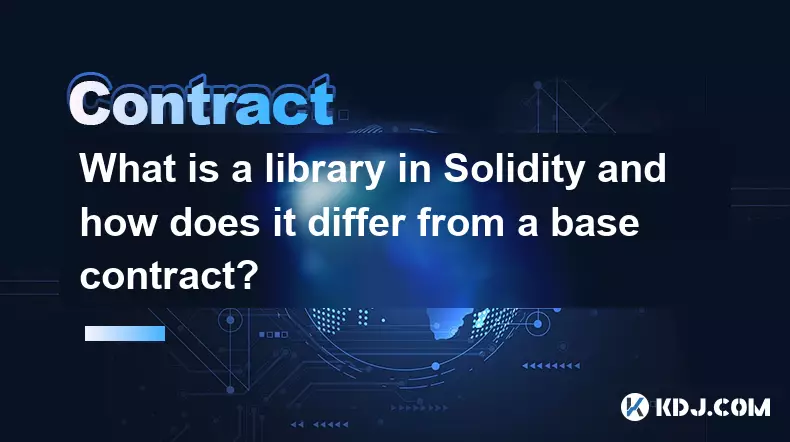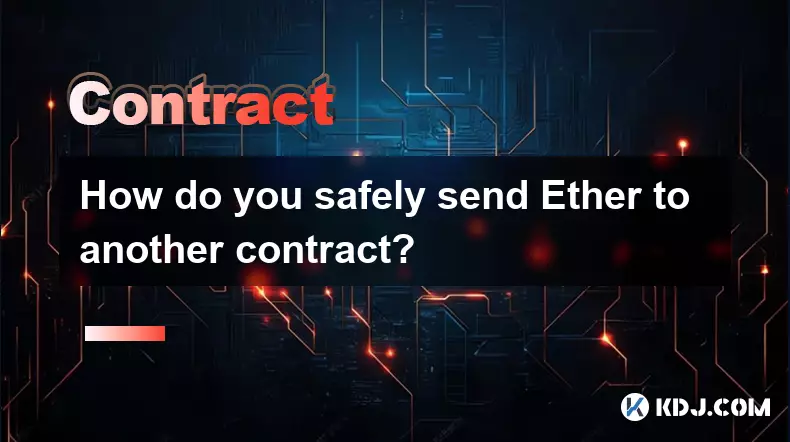-
 bitcoin
bitcoin $103128.103252 USD
-3.33% -
 ethereum
ethereum $3437.127692 USD
-4.86% -
 tether
tether $0.999700 USD
-0.02% -
 xrp
xrp $2.403993 USD
-5.73% -
 bnb
bnb $961.374676 USD
-4.11% -
 solana
solana $154.938665 USD
-8.18% -
 usd-coin
usd-coin $1.000113 USD
0.03% -
 tron
tron $0.298122 USD
0.30% -
 dogecoin
dogecoin $0.172428 USD
-5.76% -
 cardano
cardano $0.557625 USD
-7.13% -
 hyperliquid
hyperliquid $38.740701 USD
-6.51% -
 chainlink
chainlink $15.306051 USD
-7.51% -
 bitcoin-cash
bitcoin-cash $507.558648 USD
-3.26% -
 stellar
stellar $0.281899 USD
-6.74% -
 unus-sed-leo
unus-sed-leo $9.241811 USD
0.57%
What is smart contract on blockchain?
Smart contracts leverage blockchain technology to automate the execution of predetermined terms, ensuring trustless, transparent, and efficient transactions.
Oct 08, 2024 at 10:31 am

A smart contract is a self-executing contract written in code and deployed on a blockchain network. It automates the execution of predetermined terms and conditions between parties based on specific inputs and outputs.
2. Function of Smart ContractsSmart contracts facilitate trustless, transparent, and efficient transactions by:
Enforcing agreement terms: Automatically executing preset actions upon specific conditions.
Eliminating intermediaries: Removing the need for third-party verification and record-keeping.
Reducing costs and delays: Streamlining processes and saving on transaction fees and paperwork.
Ensuring transparency and immutability: Storing all contract terms and execution records on a decentralized, tamper-proof blockchain.
Codebase: The actual computer code that defines the contract's logic and functionality.
Conditions: Pre-determined triggers that initiate contract execution.
Actions: The specific actions that occur when the conditions are met.
Parties: The individuals or organizations involved in the contract.
Security: Encryption and authentication mechanisms to protect the contract from unauthorized access or manipulation.
Increased trust and accountability
Lower costs and faster transaction times
Elimination of intermediaries
Improved transparency and auditability
Enhanced security and data integrity
Smart contracts have a wide range of applications, including:
Supply chain management
Financial transactions
Identity verification
Voting systems
Property management
Dispute resolution
Legal and regulatory complexities
Technical vulnerabilities and code bugs
Costs of development and deployment
Scalability and performance concerns in high-volume scenarios
Ensuring the reliability and fairness of codebase implementation
Smart contracts revolutionize the execution of agreements by automating contract enforcement and eliminating the need for intermediaries. While overcoming challenges like security and scalability are ongoing, smart contracts hold immense potential to enhance efficiency, transparency, and trust in various industries.
Disclaimer:info@kdj.com
The information provided is not trading advice. kdj.com does not assume any responsibility for any investments made based on the information provided in this article. Cryptocurrencies are highly volatile and it is highly recommended that you invest with caution after thorough research!
If you believe that the content used on this website infringes your copyright, please contact us immediately (info@kdj.com) and we will delete it promptly.
- Ethereum, Altcoins, and Long-Term Gains: Navigating the Crypto Landscape
- 2025-11-12 09:00:00
- Strategy Shares, Bitcoin Retreat, and Market Pain: A NYC Perspective
- 2025-11-12 08:55:01
- Taft, Veterans, and Salutes: A Presidential Honor
- 2025-11-12 09:00:00
- Cryptos, Breakout, and Meme Coins: What's the Haps?
- 2025-11-12 09:40:01
- Altcoin Uprising: Nano, Velodrome, and the Dawn of Practical Crypto
- 2025-11-12 08:40:01
- Dogwifhat (WIF) Price Analysis: Navigating the Breakout Zone
- 2025-11-12 09:20:01
Related knowledge

What is a Denial of Service (DoS) attack in a smart contract and what are its common forms?
Nov 10,2025 at 05:20am
Understanding Denial of Service in Smart Contracts1. A Denial of Service (DoS) attack in the context of smart contracts refers to a scenario where a m...

What is a cryptographic nonce used for in transaction signing?
Nov 11,2025 at 05:59am
Understanding Cryptographic Nonces in Blockchain Transactions1. A cryptographic nonce is a random or pseudo-random number used only once in the contex...

How does inheritance work in Solidity smart contracts?
Nov 11,2025 at 10:40pm
Inheritance in Solidity: Building Modular Smart Contracts1. Inheritance in Solidity allows one contract to adopt the properties and functions of anoth...

What is a library in Solidity and how does it differ from a base contract?
Nov 12,2025 at 09:19am
Understanding Libraries in Solidity1. A library in Solidity is a special type of contract designed to hold reusable functions that can be shared acros...

How do you safely send Ether to another contract?
Nov 09,2025 at 06:40pm
Sending Ether to Smart Contracts: Key Considerations1. Verify that the receiving contract has a payable fallback function or a designated payable func...

What is the role of a block timestamp and what are its limitations for security?
Nov 11,2025 at 02:19am
Understanding the Role of Block Timestamps in Blockchain Networks1. A block timestamp serves as a chronological marker indicating when a particular bl...

What is a Denial of Service (DoS) attack in a smart contract and what are its common forms?
Nov 10,2025 at 05:20am
Understanding Denial of Service in Smart Contracts1. A Denial of Service (DoS) attack in the context of smart contracts refers to a scenario where a m...

What is a cryptographic nonce used for in transaction signing?
Nov 11,2025 at 05:59am
Understanding Cryptographic Nonces in Blockchain Transactions1. A cryptographic nonce is a random or pseudo-random number used only once in the contex...

How does inheritance work in Solidity smart contracts?
Nov 11,2025 at 10:40pm
Inheritance in Solidity: Building Modular Smart Contracts1. Inheritance in Solidity allows one contract to adopt the properties and functions of anoth...

What is a library in Solidity and how does it differ from a base contract?
Nov 12,2025 at 09:19am
Understanding Libraries in Solidity1. A library in Solidity is a special type of contract designed to hold reusable functions that can be shared acros...

How do you safely send Ether to another contract?
Nov 09,2025 at 06:40pm
Sending Ether to Smart Contracts: Key Considerations1. Verify that the receiving contract has a payable fallback function or a designated payable func...

What is the role of a block timestamp and what are its limitations for security?
Nov 11,2025 at 02:19am
Understanding the Role of Block Timestamps in Blockchain Networks1. A block timestamp serves as a chronological marker indicating when a particular bl...
See all articles


























![[4K 60fps] no care by crashpancake2 (1 Coin) [4K 60fps] no care by crashpancake2 (1 Coin)](/uploads/2025/11/12/cryptocurrencies-news/videos/6913a8862890b_image_500_375.webp)














































